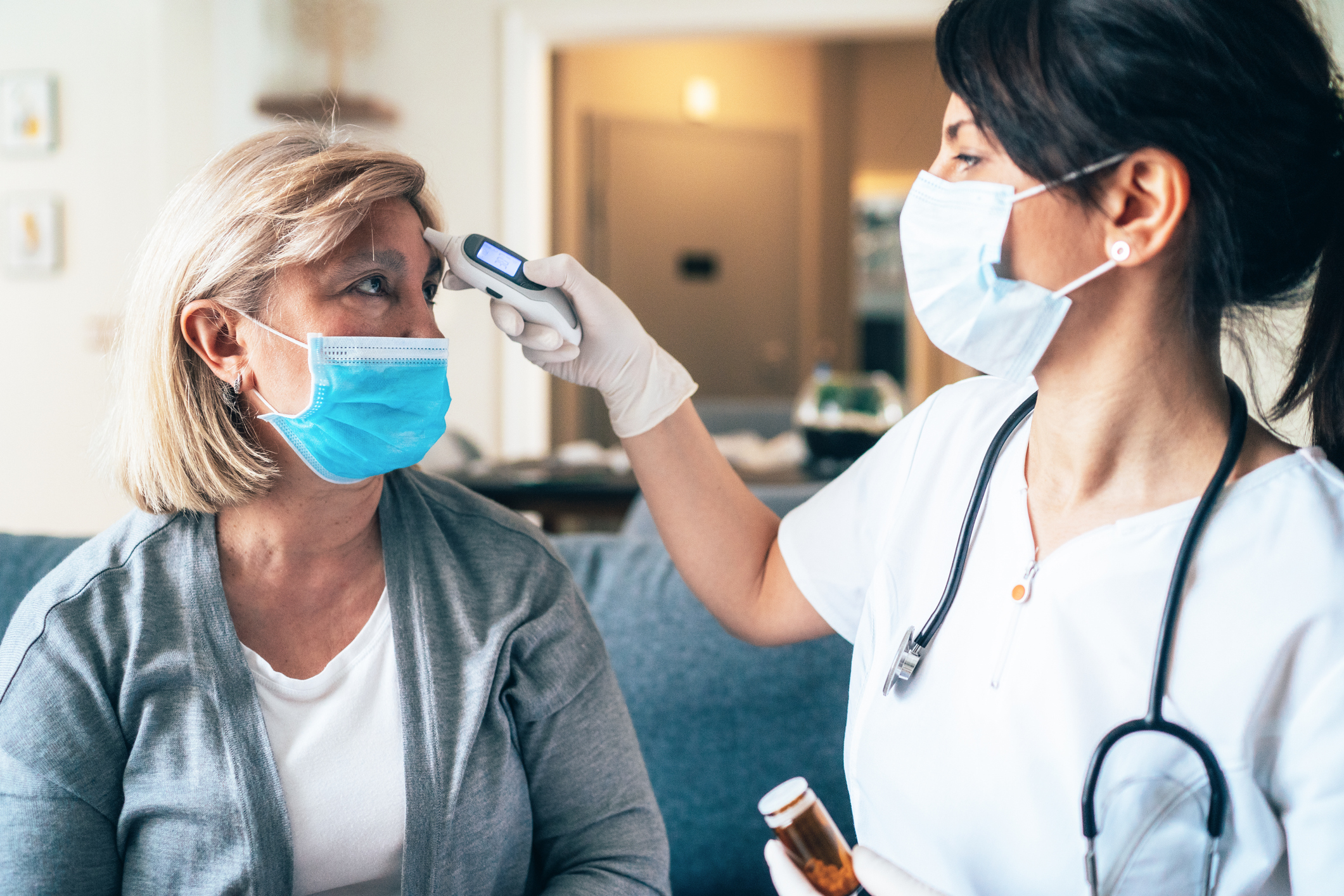Author: Frank Domino, MD in collaboration with Aylin Madore, MD
I stay up-to-date on the latest COVID-19 news and am regularly compiling a list of articles published that are relevant to your primary care practice. Read the insights below from recently published articles in less than two minutes.
-
-
-
Effects of a Major Deletion in the SARS-CoV-2 Genome on the Severity of Infection and the Inflammatory Response: An Observational Cohort Study
- View Article
- A less virulent form of the virus may explain why some patients get severely ill while others do not. A retrospective analysis in Singapore compared outcomes of those infected with the SARS-CoV-2 variant with a 382-nucleotide deletion (Δ382) only vs those infected with wild-type only vs those infected with both types. Hypoxia requiring supplemental oxygen occurred in no patients infected with Δ382 virus alone but in ~30% of those in the other two groups. After multivariable adjustment, Δ382 virus was associated with a ~90% reduction in the odds of hypoxia requiring oxygen. Patients with the 382-nucleotide deletion variant had lower levels of inflammatory markers.
-
Immunothrombotic Dysregulation in COVID-19 Pneumonia is Associated with Respiratory Failure and Coagulopathy
- View Article
- Researchers compared the neutrophil activation state from severe COVID-19 cases compared to patients with less severe disease (requiring only supplemental oxygen) and found that those with severe infections had highly upregulated neutrophil activation marker CD177, highly activated platelets, and dysregulated thrombosis cascades compared with less severe infections.
Evaluation for SARS-CoV-2 in Breast Milk from 18 Infected Women
-
- View Article
- A study of SARS-CoV-2 positive women who submitted breast milk samples evaluated by reverse transcriptase–polymerase chain reaction found no viral particles, implying breastfeeding when infected with the virus is not likely to transmit infection.
-
SARS-CoV-2 Infection Among Community Health Workers in India Before and After Use of Face Shields
- View Article
- Health care workers who added a face shield to a face mask reduced their personal infection rate almost 100% in an observational study from India.
-
-
An Overview of the Role of Relative Humidity in Airborne Transmission of SARS-CoV-2 in Indoor Environments
- View Article
- A summary of 10 international studies investigated the influence of humidity on viral (coronaviruses SARS-CoV-1, MERS. and SARS-CoV-2) spread and survival found air humidity > 40% lowers the potential for the virus to be spread through aerosol transmission.
-
Effect of Remdesivir vs Standard Care on Clinical Status at 11 Days in Patients with Moderate COVID-19
- View Article
- A study of 600 patients with COVID-19 who did not require oxygen where randomized to either a 5- or 10-day course of remdesivir or standard care. At day 11, 5 days of remdesivir improved vs. standard care. There was no difference for the 10-day group. But by day 14, both treatment groups were significantly better than standard care.
-
-
-
-
-
-
-
Impact of Famotidine Use on Clinical Outcomes of Hospitalized COVID-19 Patients
- View Article
- A retrospective, propensity matched trial of ~900 SAR-CoV-2 patients admitted to the hospital found treatment with famotidine decreased in-hospital mortality (OR = 0.37; CI 0.16 – 0.86, p = 0.021), combined death or intubation (OR = 0.47; CI 0.23 – 0.96, p = 0.040), and resulted in lower serum markers of inflammation.
-
Effect of Convalescent Plasma on Mortality Among Hospitalized Patients with COVID-19: Initial Three Month Experience
- View Article
- FDA has granted emergency authorization for use in critically ill patients with COVID-19. This was based on data from the Mayo Clinic of 35,000 patients hospitalized with COVID-19. Outcomes found the 7-day mortality was 8.7% in those transfused within 3 days of diagnosis vs 11.9% in those transfused 4 or more days later. At 30-days, mortality was 21.6% vs. 26.7%, p<0.0001, in each respective group. It also found transfusions with higher IgG levels (18.45 S/Co) vs. low IgG plasma led to lower mortality at 7 and 30 days. Pooled relative risk of mortality with high antibody levels was 0.65 [0.47-0.92] at 7 days and 0.77 [0.63-0.94] at 30 days. This study did not contain a placebo arm and was published without peer review.
For more insights, view our collection of COVID-19 resources and CME courses. We recognize it is critical that you have access to timely, reliable information, so we are working hard to release new content in collaboration with our team of infectious disease experts, medical specialists, and primary care clinicians like Dr. Frank Domino.


